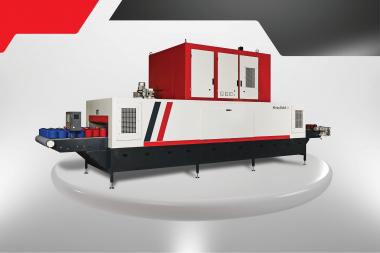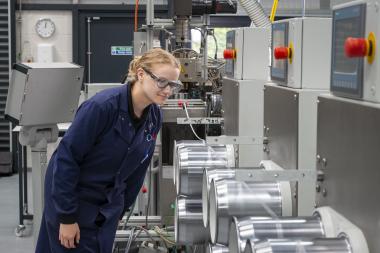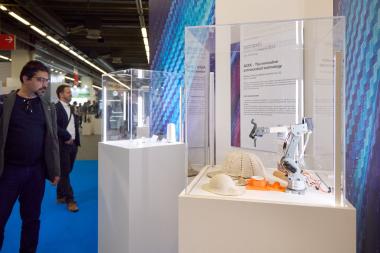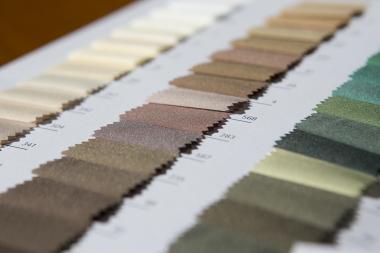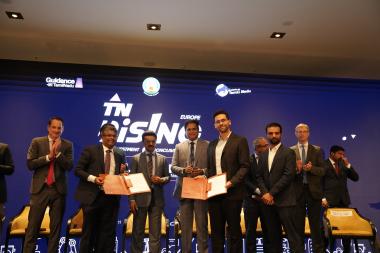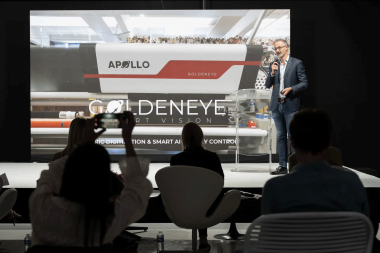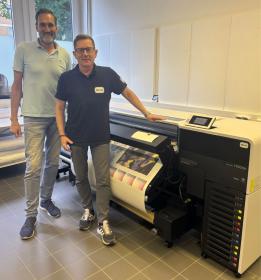EREMA: Laserfilter weiterentwickelt für hohe Durchsätze im Kunststoffrecycling
Zur K 2025 stellt EREMA eine Innovation der Marke POWERFIL vor und will damit Maßstäbe in der Schmelzefiltration für das Kunststoffrecycling setzen. Der neue Hochleistungsfilter LF 812 weist eine doppelt so große Siebfläche gegenüber dem bisherigen Spitzenmodell LF 406 auf und erweitert die Serie nach oben hin. Neu ist die Integration des bewährten Lock & Change-Systems für den Siebwechsel während des laufenden Betriebs in den Endurance-Filter, der die Vorfiltration stark kontaminierter Inputströme – etwa ungewaschener Materialien – übernimmt.
„Die Weiterentwicklung unseres Laserfilters ist ein entscheidender Schritt, um den wachsenden Anforderungen an hohe Durchsätze im Kunststoffrecycling bei gleichzeitig höchster Schmelzequalität gerecht zu werden“, sagt Markus Huber-Lindinger, Managing Director bei EREMA. Die um 100 Prozent vergrößerte Siebfläche des neuen Laserfilters LF 812 ermöglicht entweder eine Steigerung der Durchsatzmenge oder bei gleichbleibendem Durchsatz den Einsatz feinerer Siebe, was insbesondere bei qualitätssensitiven Anwendungen von Vorteil ist. Durch die größere Filterfläche ist der Betrieb mit niedrigerem Druck und einer geringeren thermischen Belastung der Schmelze ebenso möglich.
Maximale Siebfläche, minimaler Platzbedarf
Bis zu 5.000 Kilogramm filtrierte Schmelze pro Stunde sind mit dem neuen Laserfilter in SINGLE-Ausführung möglich. „Als führender Anbieter von Kunststoffrecyclinganlagen setzen wir bei EREMA unsere Erfahrung und unser technisches Know-how gezielt ein, um groß dimensionierte Anlagen mit einer leistungsstarken Filtration in kompakter Bauweise auszurüsten“, betont Markus Huber-Lindinger. Der Laserfilter LF 812 deckt in SINGLE-Ausführung Anwendungen mit Durchsätzen ab, für die bislang mehrere Filtereinheiten notwendig waren. „Durch den beachtlichen Flächenzuwachs ergeben sich neue Spielräume für das Anlagendesign. In vielen Fällen führt dies zu einem geringeren Platzbedarf und einer kompakter ausgelegten Gesamtlösung,“ ergänzt Robert Obermayr, Product Group Manager für POWERFIL bei EREMA.
Eigenfertigung für höchste Qualität und Versorgungssicherheit
Qualitative Hochleistungsfilter gewinnen im Kunststoffrecycling weiterhin an Bedeutung. Die EREMA Unternehmensgruppe reagiert darauf mit dem gezielten Ausbau der Eigenfertigung der Filterkomponenten bei 3S in Wartberg, einem Schwesterunternehmen von EREMA. Investitionen in neue Fertigungstechnologien und eine eigene Wärmebehandlung erhöhen die Fertigungstiefe und sichern eine konstant hohe Bauteilqualität.
EREMA GmbH













